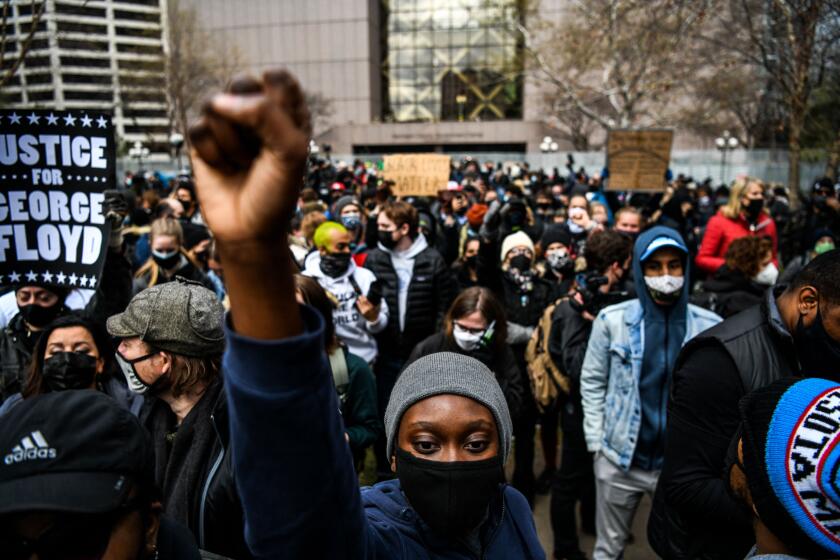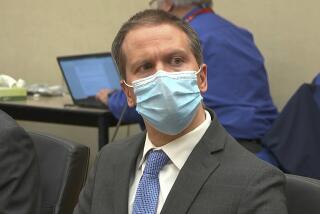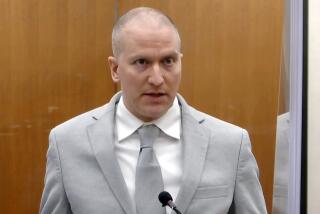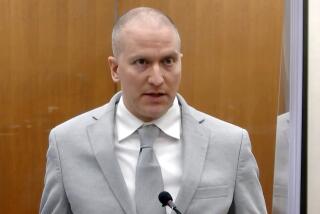‘His life, it mattered’: George Floyd’s brother speaks on Derek Chauvin verdict

- Share via
When former Minneapolis police officer Derek Chauvin was convicted of murder and then led away in handcuffs after the verdict, Philonise Floyd was reminded of his brother George Floyd’s final moments.
“I watched [Chauvin] put his hands behind his back, and I was like, ‘He had it a lot easier than my brother,’ because my brother’s hands were pinned backwards,” Philonise Floyd said Wednesday on “Good Morning America.”
Speaking with anchor Michael Strahan, the brother of George Floyd described his emotions upon hearing the jury’s decision. On Tuesday, Chauvin was found guilty of all three charges brought against him: second-degree manslaughter, second-degree unintentional murder and third-degree murder.
“I prayed for, like, 30 minutes, because it took 30 minutes for the jurors and the judge to come out,” Philonise Floyd said. “But as the judge started reading the verdict, and it was guilty, and I heard numbers, and they said guilty again, and I heard more numbers, and he said guilty ... it felt good. ...
“It was accountability, and I think that America, they feel that they can be free because this is the land of the free. And people [would have] felt differently if Chauvin wasn’t convicted.”
Don Lemon talked about his book on race, “This is the Fire,” in a Times Festival of Books panel that was cut short by the Chauvin verdict announcement.
Since Chauvin murdered his brother by pinning his knee on George Floyd’s neck for more than nine minutes, Philonise Floyd has turned his “pain into purpose” by launching the Philonise and Keeta Floyd Institute for Social Change, which aims to eliminate police brutality and reform the criminal justice system.
“It makes us happier, knowing that his life, it mattered, and he didn’t die in vain,” Philonise Floyd told Strahan. “And also, he helped change the world. He made people realize that people’s lives matter all across the world — not just here in Minneapolis, but in different countries.
“People, they marched for him, protested for him, 24/7. When we were asleep, people were marching in different countries. I’m just happy that we will have the opportunity to cement his legacy.”
The landmark case has riveted a nation wrestling with the issues of police brutality and racial injustice it raised.
Philonise Floyd also advocated for the George Floyd Justice in Policing Act, which would ban chokeholds, end “qualified immunity” for law enforcement officers and create national standards for policing in an effort to bolster accountability if passed by Congress and signed into law by President Biden.
“I just want people to understand that no matter how big you are, if you have a great heart, you will always be ... special to someone,” he said. “Because [George Floyd’s 7-year-old daughter] Gianna, she said her dad would change the world.
“And I think that we will be able to cement his legacy because he did just that. He changed the world. He brought everybody across this country together for one purpose, and that was to make sure that these officers be held accountable.”
More to Read
The complete guide to home viewing
Get Screen Gab for everything about the TV shows and streaming movies everyone’s talking about.
You may occasionally receive promotional content from the Los Angeles Times.








